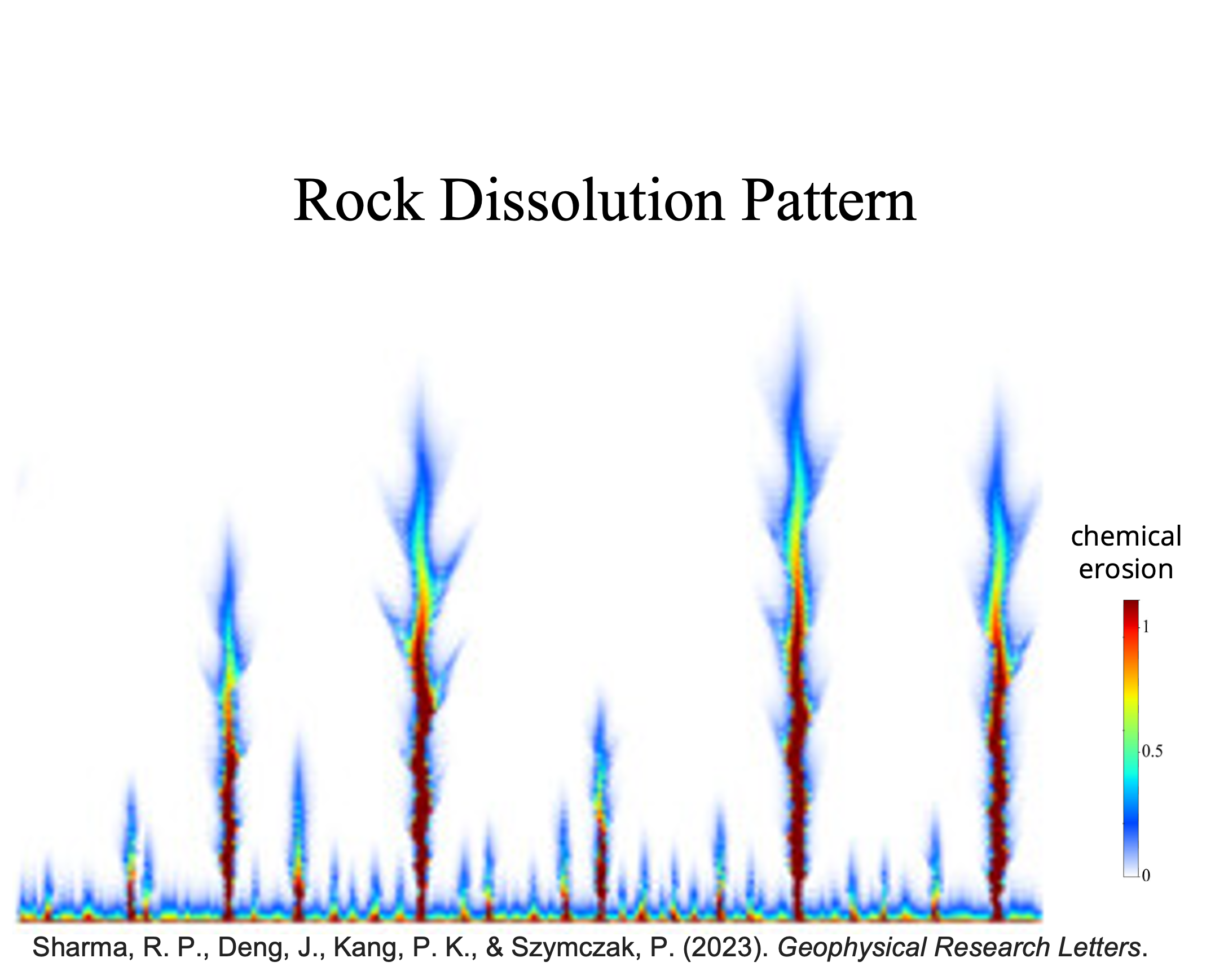Fighting the rise in global temperatures has become a major effort of researchers worldwide. Carbon capture andstorage will play a critical role in the battle against climate change. Mineral carbon storage (also known as carbon mineralization), which involves the dissolution of silicate minerals and the precipitation of carbonate minerals, offers a secure method for permanently sequestering CO2 in the subsurface. The efficiency of this process relies on maintaining a consistent supply of reactants, but challenges like the formation of secondary minerals leading to clogging of the system can obstruct it.
PhD student Jingxuan Deng (Earth Sciences program, Earth and Environmental Sciences), in a project called “Optimizing mineral carbon storage through high-performance computing and machine learning,” is combining high-performance computing and machine learning to find optimal conditions for carbon mineralization. The project combines numerical modeling of mineral dissolution and precipitation and data-science approaches such as big data processing and machine learning to better understand the interplaybetween fluid flow and dissolution/precipitation processes. Accurate modeling of dissolution and precipitation will be achieved by integrating an intersection mixing rule developed through a machine learning-based framework into network-scale dissolution/precipitation modeling. This project will elucidate the operation and field conditions that are required for achieving continuous mineral carbonation.
Some funding for this project was provided by a DSI-MnDRIVE PhD Graduate Assistantship. The DSI-MnDRIVE Graduate Assistantship program supports U of M PhD candidates pursuing research at the intersection of data science and any of the five MnDRIVE areas:
- Robotics
- Global Food
- Environment
- Conditions
- Cancer Clinical Trials
Projects in this program must align with one of the Data Science Tracks:
- Foundational Data Science
- Digital Health and Personalized Health Care Delivery
This project is part of the Environment MnDRIVE area and the Foundational Data Sciences track. See the complete list of the RC-MnDRIVE Graduate Assistantships.
